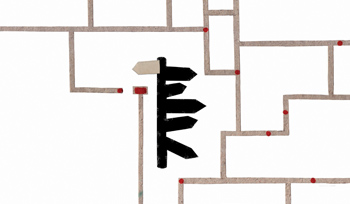Submitted by lratledge on
Status offences criminalise actions for only certain groups of people, most commonly because of their religion, sexuality or age. Curfews, truancy laws and vagrancy offences can penalise children just for being in public, while “disobedience” laws can transform activities that would be perfectly lawful for an adult into a criminal offence for a child.
Even where a status offence does not explicitly single out children, children will often be disproportionately affected and those children with the lowest levels of resources and the least available support from home or family environments will be the most affected. Because police are given great discretion to question and investigate children's activities, especially when they are without adult supervision, disadvantaged and street children are targeted because they are forced to spend more time in public spaces and face entrenched cultural biases that equate poverty with criminality.
Most importantly, regardless of their backgrounds or situations at home, status offences are a violation of all children's rights. They violate children's rights because they target what adults consider to be problematic behaviour in children but acceptable once above the age of majority. Thus, limits are placed on children's behaviour that are not tolerated by adults. The United Nations Guidelines for the Prevention of Juvenile Delinquency have spoken out against these limits, stating that status offences stigmatise, victimise, and criminalise young people. These guidelines, the UN Human Rights Council, the Committee on the Rights of the Child, and the United Nations World Report on Violence Against Children have all called for the abolition of status offences to achieve equal treatment for children and adults.
CRIN first published a global report on status offences in 2009, looking at the ways that laws on curfew violations, disobedience, begging, truancy and suspected gang membership affected children around the world. Seven years later, we are publishing an updated report addressing the ways that status offences have developed, the new forms they have taken and the way that laws that do not exclusively target children can indirectly criminalise children based on their age. In this report, we also look at the way that these laws and practices have been challenged.
CRIN believes that status offences are a form of age discrimination and should be eliminated. Status offences are not only unfair, they curtail the freedom children need to grow and develop. They prevent children from becoming integrated into adult society. Ultimately, then, status offences not only fail to respect children's rights, they are in conflict with children's best interests. With this in mind, it is time to call on every country to abolish status offences and protect children from harmful age discrimination.

